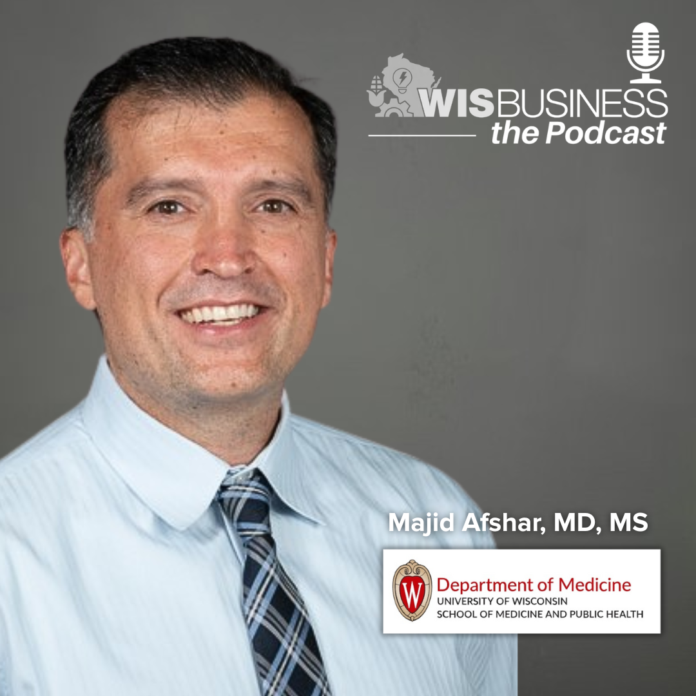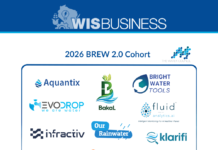This week’s episode of “WisBusiness: the Podcast” is with Dr. Majid Afshar, associate professor of medicine at the UW School of Medicine and Public Health.
The podcast is focused on a new AI-based screening tool for opioid addiction, which was developed by a research team at the UW SMPH. It was featured in a recent clinical trial study published in the journal Nature Medicine.
Researchers created an AI model using documentation in the health care record that can detect patients that may be at risk, alert the provider and guide them toward connecting patients with addiction resources. It uses notes that are already collected through routine clinical practice and analyzes them for patterns associated with substance abuse.
“A lot of these patients come to the hospital for other reasons, like wound infection or pneumonia or asthma, and it’s the underlying, you know, substance use disorder that’s maybe contributing to that,” Afshar said. “But it’s never prioritized because you’re kind of focused on the physical ailment.”
He discusses the development process for the AI tool, how it was trained to learn the correct trends and how it’s currently being used. Afshar says the “sophisticated” program has more than 13 million parameters, giving it the ability to assess patient records in a nuanced way.
“I don’t think we’re going to be replaced by AI, but certainly it can augment our workflows to become more efficient,” he said. “And so that’s the goal here, was that kind of learning how to use this technology so it can help augment our clinicians.”
The screening tool can identify some addicts that may otherwise have slipped through the cracks, Afshar said, helping to put them in touch with addiction medicine specialists, treatment and other supports. Along with reducing the number of return visits to the hospital, the tool resulted in cost savings as well.
The conversation also touches on the path ahead for the tool’s development, with Afshar noting future iterations may include more targeted approaches to notifying the correct people within the health system.
Listen to the podcast below, sponsored by UW-Madison:







